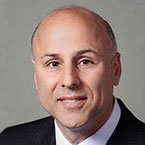Overcoming the Challenges of Genetic Test Identification for Billing & Reimbursement
Genetic tests continue to enter the market in enormous quantity and variety, and genetic testing laboratories constantly evolve their test offerings. Identifying and tracking tests is critical to many core healthcare operations, from clinical test ordering, to gathering evidence about clinical utility and value, and ultimately, to insurance coverage, billing and reimbursement.
Billing and reimbursement are particularly pivotal as they affect patient/consumer access, market economics, and the viability of innovative new tests and labs. Growing demand for genetic tests and their increasingly frequent use are only compounding these issues, with direct clinical, economic, and social implications.
Recent developments emphasizing the importance of this topic include:
- The continued release of new CPT®, PLA and MAAA codes
- The FDA/CMS parallel review process and emerging National Coverage Decisions
- Recent high-profile investigations (DOJ, OIG, etc.) involving laboratory billing practices
- How the COVID-19 pandemic raises the importance of test order tracking
This webinar seeks to provide a market update and highlight the ongoing work to overcome these challenges. Topics for discussion will include the:
- Underlying issues that make test identification difficult in genetics
- Challenges caused by these issues (general and specific)
- Work underway and progress to date
Complete the form on this page to view the recording.

LabCorp
Jim Almas is Vice President and National Medical Director for Clinical Effectiveness at LabCorp. He is a board-certified pathologist with years of experience in hospitals, independent laboratories, and with service to Medicare. Dr. Almas recently served as Medical Director of the MolDX Program at Palmetto GBA. There he oversaw coverage and reimbursement (through the MolDX Program) for 28 states for Medicare.
Prior to that service, Dr. Almas was a medical officer in the Coverage and Analysis Group at the Centers for Medicare & Medicaid Services. At Medicare, he was responsible for the National Coverage Determinations in the area of laboratories and was involved with the parallel review process (with the US Food and Drug Administration) for the Foundation Medicine application. Dr. Almas also previously served as the College of American Pathologists AMA/CAP CPT-Advisor to the CPT Editorial Panel.

American Medical Association (AMA)
Dr. Mira Bjelotomich Irons is the Chief Health and Science Officer; Group Vice President, Health and Science, at the American Medical Association (AMA), and in this role provides intellectual leadership for AMA initiatives at the interfaces of practice, science, evidence, policy, ethics, and technology. Dr. Irons is a board-certified physician in both Medical Genetics and Pediatrics and has an impressive breadth and depth of experience in academic medicine, clinical practice, medical professional leadership and scientific research.
Prior to joining the AMA, she was the Senior Vice President for Academic Affairs at the American Board of Medical Specialties where she led core ABMS programs and staff that served to advance improved standards and methods for certification, continuing certification and lifelong assessment, as well as leading the ABMS International programs. Prior to coming to ABMS, Dr. Irons spent 30 years in academic medicine in Boston, initially at Tufts Medical Center and more recently at Boston Children’s Hospital where she oversaw clinical operations of the Division of Genetics and served as an Associate Professor of Pediatrics at Harvard Medical School, in addition to running a busy clinical practice.

Bruce Quinn Associates, LLC
Bruce Quinn MD PhD is a leading expert on federal health policy and how innovative technology companies can adapt for success. His consulting practice, with offices in Los Angeles and San Francisco, works with leading genomic, medical technology, and biopharma companies. Originally trained as a neuropathologist, earlier in his career he held tenure-track faculty positions at NYU Medical School and the Northwestern University School of Medicine.
As a physician executive, he has held positions with Accenture’s healthcare strategies practice, the Medicare program, and with health policy groups in two law and lobbying firms. Recent publications have included articles on defining clinical utility for diagnostic tests and a review of the emerging digital genomics industry. In addition, his blog, DiscoveriesInHealthPolicy.com, covers innovative health care policy developments and receives over 100,000 hits per year.

The Lewin Group
Cliff Goodman, PhD, is Senior Vice President at The Lewin Group, the consulting business unit within OptumServe, the federal health services business of Optum and UnitedHealth Group. He has 30 years of experience working with government, industry and nonprofit organizations in such areas as health technology assessment, comparative effectiveness research, health economics, and studies pertaining to health care innovation, regulation, and payment for pharmaceuticals, biologics, medical devices, and other interventions. Other recent areas include pharmacogenomics, diagnostic testing, personalized medicine, organ donation and transplantation, and policy applications of cost-effectiveness analysis. He served as Chair of the Medicare Evidence Development and Coverage Advisory Committee (MEDCAC) for the Centers for Medicare & Medicaid Services (2009-2012).
Dr. Goodman is Past President of the professional society, Health Technology Assessment International (HTAi), and is a Fellow of the American Institute for Medical and Biological Engineering. A compelling public speaker on these topics, Cliff is also a nationally recognized health policy issues moderator and expert panel facilitator. He received a Doctor of Philosophy from The Wharton School, University of Pennsylvania, a Master of Science from The Georgia Institute of Technology, and a Bachelor of Arts from Cornell University.
CPT © 2020 American Medical Association. All rights reserved.
